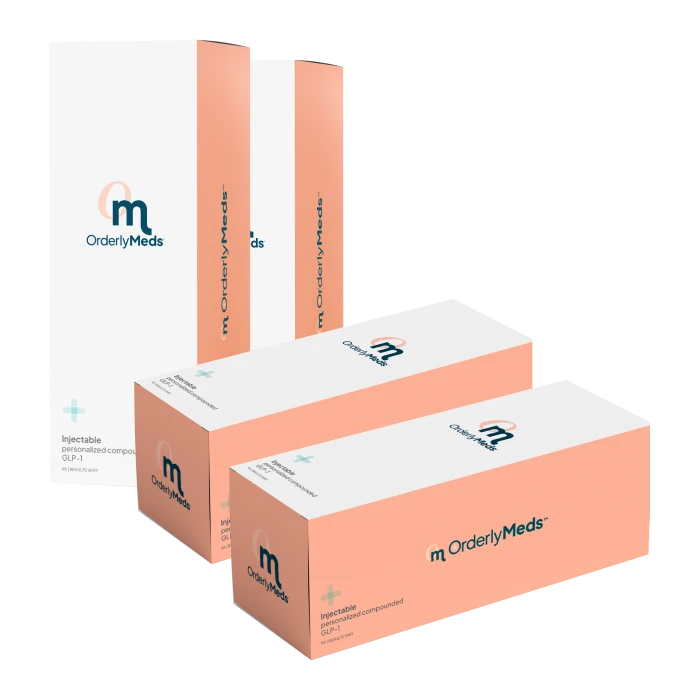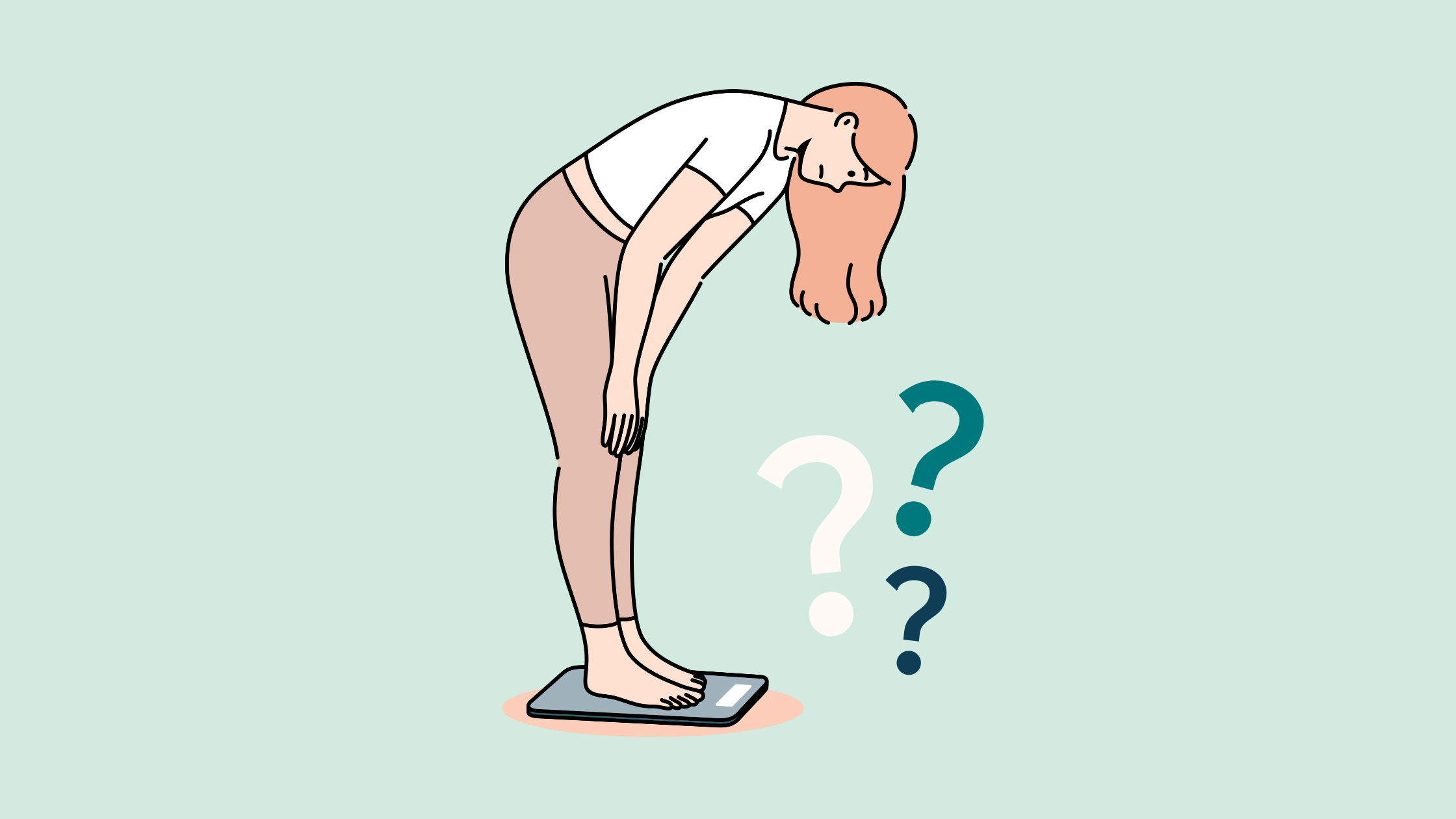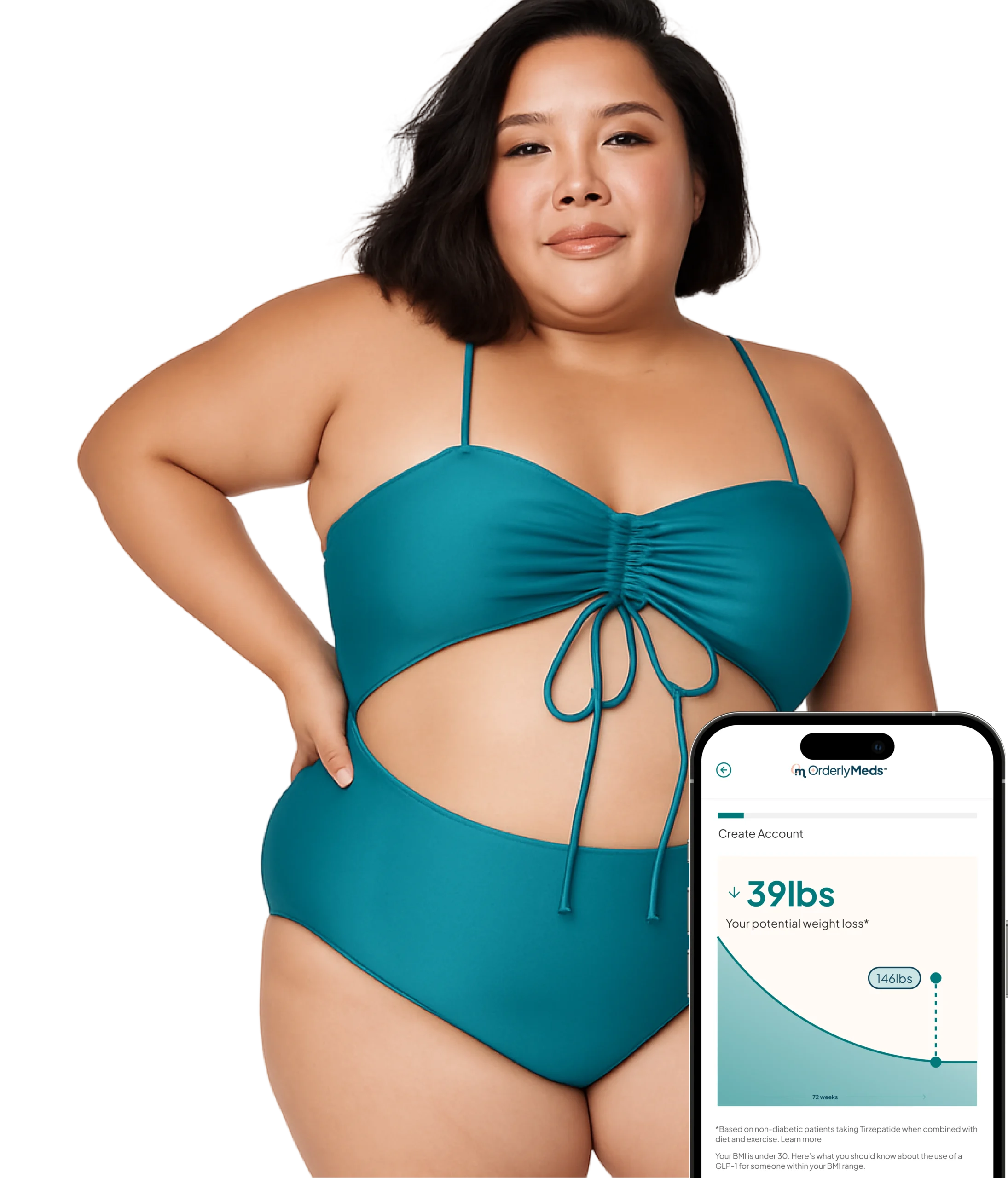Semaglutide medications have earned a reputation as an effective prescription medication for weight management and blood sugar control. Yet, some people report they are still hungry on semaglutide, even after several weeks of use.
But, why does this happen? And can you do about it?
You’re not alone if you’ve been wondering why you’re still hungry or how long it takes for the medication to suppress your appetite.
There are many possible reasons for persistent hunger and the longer timeline of appetite-suppressing effects. In this guide, we’ll explore common reasons and offer tips on how to combat hunger-related issues.
Key Takeaways
- Semaglutide can begin to influence your appetite, particularly during the initial adjustment period.
- Some individuals may feel hungrier than expected in the early weeks; this is a normal part of the body’s adaptation.
- A return of appetite after reduced hunger may indicate a shift in how the medication is working, and you may need to speak to your provider about an adjustment.
- Evidence-based strategies, like balanced meals, hydration, and mindful planning can support you through this transition.
Does Semaglutide Suppress Appetite Immediately?
Yes and no. Mayo Clinic reports that semaglutide medications, like Wegovy, do begin to work on appetite control relatively soon after use – as quickly as the first week. Still, it’s important to note that the full appetite-suppressing effect may take several weeks to become noticeable. As you progress and your dose gradually increases, you may experience a marked decrease in hunger. However, the timeline varies from one individual to another depending on dosage schedule, co-occurring conditions, and regimen adherence.
Why Am I Still Hungry On Semaglutide?
Feeling hungry on semaglutide is a more common medication response than you’d think. There are many different reasons a person may still crave certain foods or struggle to cut back portions. Luckily, many things can be remedied by speaking with your weight management provider and implementing lifestyle changes.
Metabolism Differences
Every individual’s metabolism is unique. Semaglutide mimics GLP-1, a hormone that regulates appetite and insulin levels. For some people, a GLP-1 medication’s effect on the body’s hunger signals may not be as immediate or potent as it is for others.
However, this doesn’t necessarily mean semaglutide won’t work for you. It just may require more time and a dosage adjustment to reach optimal effectiveness. In fact, studies show it can take up to 20 weeks to start experiencing real appetite changes.
Dosage and Consistency
If you’re still hungry on semaglutide, it could be because you’re not yet at the therapeutic dose that effectively curbs your appetite. For most plans, your semaglutide dosage often starts at .25mg and gradually increases over several weeks or months to 2.5mg.
Timing is also crucial. Taking semaglutide consistently each week and following your healthcare provider’s instructions can help you get better results. Missing doses can also reduce the medication’s effectiveness and increase side effects.
Eating Patterns
Hunger isn’t always driven solely by physical needs. At times, emotional and psychological factors can also play a role. Even if your prescribed semaglutide medication lessens physiological hunger signals, habits like stress eating, boredom, or social eating can still lead to overeating.
Addressing habitual eating patterns and reinforcing healthy behaviors through a comprehensive plan that includes nutrition guidance and mental health support is also important.
Underlying Medical Issues
Finally, underlying medical issues such as hormonal imbalances, vitamin and mineral deficiencies, thyroid problems, or interactions with other medications can also contribute to ongoing hunger. If you suspect that another condition or medication might be interfering, consult with your healthcare team for a thorough evaluation.
Strategies For When You Still Feel Hungry On Semaglutide
There are things you can do at home if you’re still struggling with semaglutide hunger. Before reaching out to your provider, try making lifestyle changes to see how they impact your appetite.
Monitor Your Eating Habits With a Food Journal
Keep a food journal – but be sure to track more than your calories. Instead, aim to track what, when, and why you’re eating.
Taking a mindfulness-based approach to food journaling can help you identify triggers for hunger that aren’t necessarily physiological, such as stress or fatigue, and help you better understand your eating habits and relationship to food.
Stay Hydrated
If you’re feeling hungry on semaglutide, it might be time to check your hydration levels. Sometimes, thirst masquerades as hunger and your body can confuse your thirst and hunger cues. If you’re feeling hungry on semaglutide, aim to drink at least eight glasses of water daily to ensure you’re properly hydrated.
Have trouble staying hydrated? Invest in a refillable water bottle and keep it by your side. Set timers to remind you to drink. You can also spice up your H20 intake by experimenting with low-calorie flavor options like freshly squeezed citrus or water-enhancing drops.
Pack Your Plate With Protein and Fiber
Both protein and fiber can help you feel full for longer. Consider emphasizing lean proteins like chicken or fish in your meals. Meatless? Opt for plant-based sources like tofu and tempeh instead.
Fiber can also help keep you full. Consider incorporating fiber-rich foods such as leafy vegetables, fruits, and whole grains into your diet.
Practice Mindful Eating
Slowing down during meals and avoiding distractions can help you get familiar with paying attention to your hunger cues. Mindful eating techniques, such as chewing thoroughly and savoring each bite, can help prevent overeating and ensure optimal digestion.
Regular Physical Activity
Exercise isn’t just about weight management. It can also improve mood and regulate appetite. Aim for a balanced fitness routine that includes cardio and strength training at least three to five times a week.
To begin, try to get moving for thirty minutes each day with a brisk walk to your favorite playlist or audiobook.
Seek Professional Guidance
It may be time to consult with a healthcare professional if you’re consistently feeling hungry despite adjusting your diet, exercise, and medication schedule. Your doctor may recommend lab tests, evaluate your dosage, or suggest additional interventions.
Still Hungry on Semaglutide? OrderlyMeds is Here to Help
Weight management with semaglutide can be challenging without the right support team. At OrderlyMeds, we’re committed to providing holistic wellness care beyond just filling your prescription.
That’s why our services include services that support your overall wellness:
- Doctor Consultations: Ensure your medication is working as expected and receive professional advice on whether your dose needs to be adjusted.
- Nutrition Guidance: Our dietitians can help optimize your meal plans so you stay satisfied longer.
- Fitness and Wellness Support: Collaborate with fitness experts who tailor exercise programs to complement your medication’s effects.
- Mental Health Services: Address the emotional aspects of hunger and equip yourself with strategies to overcome stress-eating and other behavioral challenges.
Finding success with semaglutide doesn’t need to be stressful. With OrderlyMeds, you don’t have to go it alone. Our team of caring professionals is here to help you on your journey – no matter where you are. With us, you can trust you’re in good hands.
Get started with OrderlyMeds today to receive the robust support you deserve and pave your path toward a healthier tomorrow.
Frequently Asked Questions About Semaglutide and Hunger
Can Semaglutide Make You Feel Hungrier?
For most people, semaglutide works by reducing appetite and supporting a more consistent relationship with food. However, in the early weeks of treatment, your body is still adjusting. It’s not uncommon to experience days when your hunger feels unexpectedly strong. This doesn’t necessarily mean the medication isn’t working—it may simply reflect your body’s natural adaptation process.
What If I Suddenly Feel Hungrier After Starting Semaglutide?
If your appetite returns after a period of reduced hunger, it could signal that the medication’s effect is shifting. This may happen as your body adjusts or if there’s been a change in dosage. Keep track of these changes and bring them up with your healthcare provider. They can help you fine-tune your treatment plan to stay aligned with your weight loss and wellness goals.
How Can I Manage Cravings During the First Few Weeks?
Cravings can still occur early on, especially before the medication reaches its full therapeutic effect. To stay on track:
- Prioritize meals rich in protein and fiber to help you feel full longer
- Remove tempting, high-calorie snacks from easy reach
- Keep pre-portioned, nutrient-dense options on hand to curb impulse eating
- Stay hydrated throughout the day—sometimes thirst can mask as hunger
- Stick to a regular eating schedule to support blood sugar stability and minimize dips in energy
Making small, sustainable adjustments during this phase can help you feel more in control as your body adapts.






